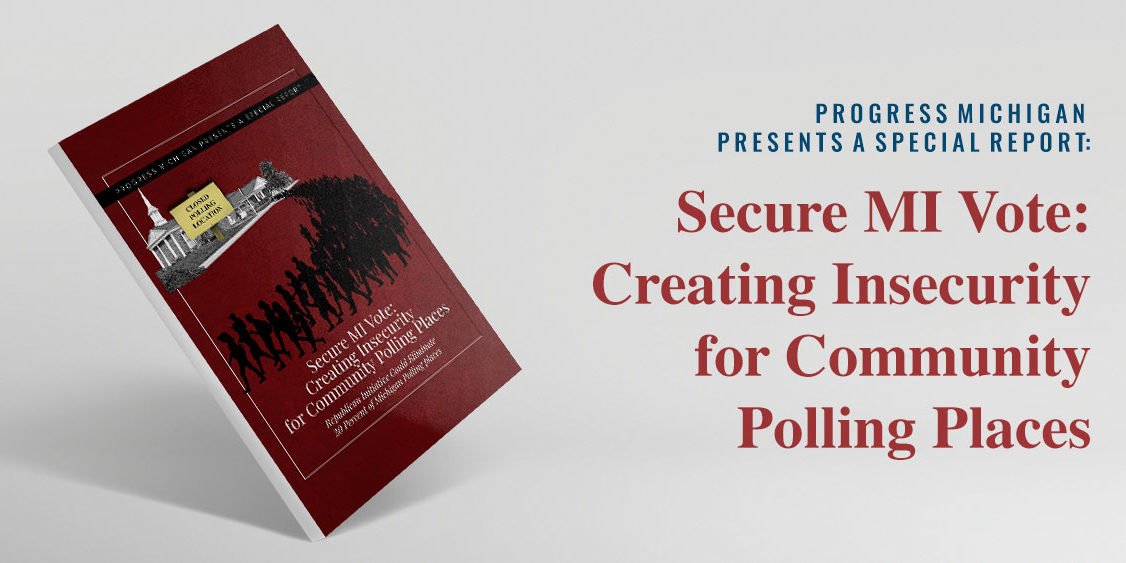FOR IMMEDIATE RELEASE
News from Progress Michigan
November 10, 2021
Contact: Sam Inglot, 616-916-0574, sam@progressmichigan.org
New Report: Republican Ballot Initiative Could Eliminate 20 Percent of MI Polling Places
An analysis of 2020 polling location data and interviews with local election clerks show the petition could affect hundreds of donated religious spaces used as polling places
MICHIGAN – A new report compiled by Progress Michigan shows the Secure MI Vote ballot initiative would negatively impact voters across the state by prohibiting clerks from accepting private money or in-kind contributions for election-related activities, including private spaces donated as polling places such as churches, which accounted for 664 polling places in 2020.
“I hope people are able to see the danger and the impact of this proposal and refuse to sign it. If this were to pass, I don’t know what I would do. I don’t know what other clerks would do. In my experience, paying for the use of polling place locations is fairly uncommon,” said Mary Clark, president of the Michigan Association of Municipal Clerks and Delta Township clerk. “This is the type of policy that causes me to lay awake at night because it will cause so much confusion amongst voters and put clerks in impossible situations. This would absolutely negatively impact legally registered voters in my jurisdiction and every jurisdiction in this state.”
“This report is just the tip of the iceberg. This proposal will negatively impact voters and clerks across Michigan,” said Sam Inglot deputy director of Progress Michigan. “This initiative will change where voters have voted in previous elections, in some cases for decades, and could reduce the overall number of polling places available to voters. This systematic defunding of our elections will result in longer lines, longer drives, and less people able to make their voices heard.”
The full report is available here. Highlights include:
- 20 percent of Michigan polling places in 2020 were located at either religious organizations or places of worship
- 41 counties had at least one church as a polling place in 2020
- 15 counties used churches as more than 20 percent of their polling places in 2020
- 111 cities or townships used churches as at least 50 percent of their polling places in 2020
###

